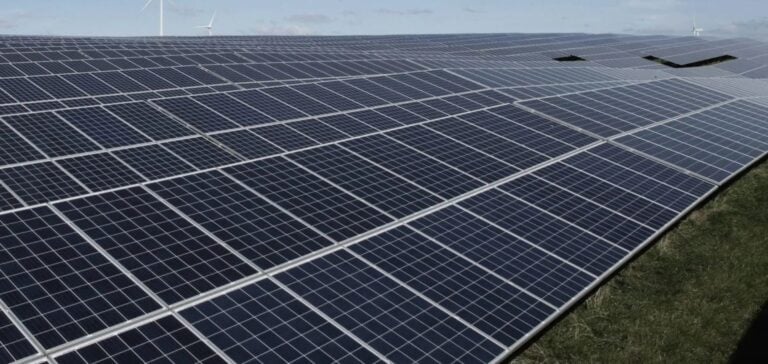Estonia has reached a milestone in its energy transition with the construction of the largest solar park in the Baltic States. Located in Risti, Lääne County, this project developed by Sunly and Metsagrupp aims for a total capacity of 244 MW, providing electricity to approximately 55,000 households by autumn 2026.
The total investment of €125 million is part of a larger plan. In August, Sunly secured €300 million from Scandinavian and French investors to fund hybrid projects in the Baltics and Poland. The Risti project will also include a wind farm and energy storage solutions, with a planned battery capacity of 144 MW.
Strengthened Local Commitment
The project is closely tied to the local community. An agreement between Sunly and the Lääne-Nigula municipality ensures the latter will receive 0.6% of the solar park’s revenue. At an average rate of €0.05/kWh, this could represent up to €75,000 annually over 25 years, the minimum expected lifespan of the facility.
This partnership also aims to enhance local infrastructure. If a wind farm is added to the site, Sunly proposes offering discounted electricity to residents, highlighting its commitment to sustainability and community support.
A Visionary Hybrid Model
Sunly CEO Priit Lepasepp emphasized the importance of this project as an example of integrated hybrid solutions. By combining solar energy, storage, and wind power, it aims to stabilize electricity prices while boosting energy independence. The nine planned wind turbines are being designed in consultation with local residents to minimize visual and environmental impact.
Furthermore, Erkki Keldo, Estonia’s Minister of Economy and Industry, highlighted the importance of such initiatives in attracting investors while ensuring sustainable competitiveness for local industries. To facilitate such projects, the government is working to streamline administrative procedures.






















